Vietnamese startups with notable funding rounds
Earlier this February, VinaCapital announced a one million USD investment in Vietnamese agricultural startup Koina. This startup received the investment capital after connecting with more than 80 farming households across the country, connecting more than 1,000 small traders in Ho Chi Minh City, Hanoi, Dong Nai, helping to consume more than 1,000 tons of agricultural products... Recently, BuyMed - a startup investing in the pharmaceutical distribution e-commerce platform Thuocsi.vn based in Ho Chi Minh City has successfully raised 33.5 million USD. According to DealStreetAsia, of which UOB Venture Management's investment is 28 million USD. The two remaining investors are Smilegate Investment (2.5 million USD) and Cocoon Capital (3 million USD). Previously, BuyMed received more than ten million USD from the previous round of funding. Founded in 2018, BuyMed connects pharmaceutical manufacturing and distribution companies with about 35,000 pharmacies and clinics in 63 provinces and cities nationwide. Through the website thuocsi.vn, buyers can quickly look up the ingredients, uses, prices of drugs and order drugs. According to DealStreetAsia, another Vietnamese startup, Gimo, has just raised a total of 4.6 million USD, led by venture capital firm TNB Aura. Previously, Gimo also received an investment of nearly 2 million USD led by Singapore's Integra Partners fund. Gimo is an instant salary advance platform for Vietnamese workers. Gimo provides a platform that helps companies calculate employees' salaries at any time, thereby allowing employees to receive their salaries early before the company's regular payday. The advance payment is calculated based on the actual timekeeping data of the employee in the month, all transactions are transparent and updated in real time. Speaking at the Vietnam Creative Startup Investment Fund Forum 2022, Mr. Nguyen Chi Dung, Minister of Planning and Investment , said that Vietnam's creative startups are increasingly attracting international investors. From 2020 to 2022, the investment capital in creative startups has reached nearly 2 billion USD. "Investment from funds has comprehensively supported startups in terms of financial support, knowledge, operational capacity, development, and product commercialization, contributing to creating outstanding values for Vietnamese startups when reaching out to the international market. This helps the Vietnamese creative startup ecosystem become more and more vibrant, attractive and of higher quality," said Mr. Nguyen Chi Dung. According to statistics from the National Center for Supporting Innovative Startups (Ministry of Planning and Investment), in 2022, Vietnam ranked 54th in the global startup ecosystem, up 5 places compared to 2021. The country currently has about 3,800 active startups. Vietnamese startups raised a record $1.4 billion in investment capital across 165 transactions in 2021, up 1.6 times from $894 million and 126 transactions in 2019. The National Center for Supporting Innovative Startups forecasts this growth momentum to continue in 2023 with a projected GDP of 6.7%. A report by KPMG and HSBC said that by mid-2022, the number of startups in Vietnam had nearly doubled compared to the early stages of the Covid-19 pandemic. BambuUp's Vietnam Open Innovation Ecosystem Report 2022 shows that the Vietnamese startup ecosystem has attracted strong investment capital since the end of 2019. This is reflected in the number of deals as well as the capital poured into domestic startups by domestic and foreign investors and venture capital funds. In 2021, there were a total of 165 deals and a total investment capital of up to 1.4 billion USD.Actions to be worthy of the Southeast Asian startup eco-triangle
At the Vietnam Innovation Startup Investment Fund Forum 2022 recently held, 39 investment funds committed to investing 1.5 billion USD in projects, startups, and innovation in Vietnam in the next 3 years. At the above forum, Mr. Vinnie Lauria, Founder and CEO of Golden Gate Ventures, said that Singapore and Indonesia are the leading growth drivers in the first decade of the Southeast Asian startup ecosystem. By 2022, Vietnam will be the third pillar of this golden triangle. Vietnam has technological talent, a rapidly growing domestic market... Mr. Vinnie Lauria believes that the strength of the Singapore - Indonesia - Vietnam triangle will make Southeast Asia a magnet for attracting global investment capital. Although Vietnamese startups are attracting large amounts of investment capital, Mr. Nguyen Chi Dung, Minister of Planning and Investment, said that it is necessary to soon form a real and effective investment environment for creative startups so that domestic and international investors can actively, flexibly and transparently invest and withdraw capital. In particular, focusing on building and perfecting institutions, mechanisms and policies to promote the capital market in a direction consistent with market mechanisms and international practices. To promote startup activities, in the coming time, the Ministry of Planning and Investment will conduct research and report on the possibility of building a Law on Venture Capital and propose a mechanism to establish a fund to support innovation mobilized from socialized capital sources, not using the state budget with the goal of quickly and effectively supporting potential creative startup projects. Also at the Vietnam Innovative Startup Investment Fund Forum 2022, 39 investment funds committed to investing 1.5 billion USD in the period of 2023 - 2025. Recently, the Ministry of Information and Communications organized a workshop on Developing Vietnamese digital unicorns to find solutions to remove difficulties for digital technology enterprises in raising capital and developing products and markets. At the above event, Ms. Bui Thu Thuy, Deputy Director of the Department of Enterprise Development, Ministry of Planning and Investment, shared that in recent times, there have been many support policies for small and medium enterprises, including digital technology enterprises through the Small and Medium Enterprise Development Fund. With the above Fund, Ms. Thuy said that the main support object is startups but so far has only lent more than 233 billion VND. Similarly, for the Small and Medium Enterprise Credit Guarantee Fund, the country has 28 funds but the total amount of guarantees for small and medium enterprises has only reached nearly 200 billion VND. However, Ms. Thuy said that the Government has amended Decree 80 detailing and guiding the implementation of a number of articles of the law on supporting small and medium enterprises to empower support agencies. Hopefully, from 2023, the Fund will be resolved, becoming a source of support for more technology startups. Also at the workshop on Developing Vietnamese Digital Technology Unicorns, Ms. Mai Thi Thanh Binh, a research expert from the Information Technology Department, Institute of Information and Communications Strategy, said that most of Vietnam's digital technology enterprises are small and medium-sized enterprises, even micro-sized. Most of them are in the start-up stage, the products and services they provide are not mature enough to develop and dominate the market of 100 million people. Regarding the six main capital mobilization channels for digital technology enterprises, Ms. Binh said that they include government funding, subsidies, equity, capital mobilized from stocks, credit capital, capital mobilized from bonds and capital from investment funds and investors. However, businesses face many difficulties when accessing these channels due to high credit risks, intangible collateral and uncertainty about the future. Analyzing financial mechanisms to promote the potential of investment capital mobilization channels for digital technology enterprises, Ms. Binh said that they include: calling for community capital and venture capital funds to support enterprises; product testing mechanisms, new business models to support startups. According to a 2022 study by the Asian Development Bank (ADB), Vietnam needs a number of policy reforms to create an environment that stimulates the establishment of innovative enterprises, promotes the growth of technology startups and improves access to finance.Vu Tung


![[Photo] Hue: Inside the kitchen that donates thousands of meals a day to people in flooded areas](https://vphoto.vietnam.vn/thumb/1200x675/vietnam/resource/IMAGE/2025/10/29/1761738508516_bepcomhue-jpg.webp)

![[Photo] Human love in the flood in Hue](https://vphoto.vietnam.vn/thumb/1200x675/vietnam/resource/IMAGE/2025/10/29/1761740905727_4125427122470875256-2-jpg.webp)

![[Photo] Prime Minister Pham Minh Chinh chaired a meeting to evaluate the operation of the two-level local government model.](https://vphoto.vietnam.vn/thumb/1200x675/vietnam/resource/IMAGE/2025/10/29/1761751710674_dsc-7999-jpg.webp)

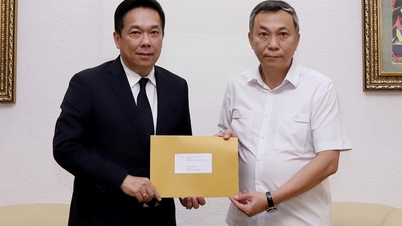

















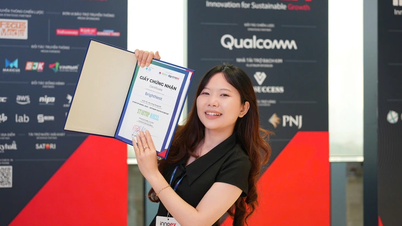





































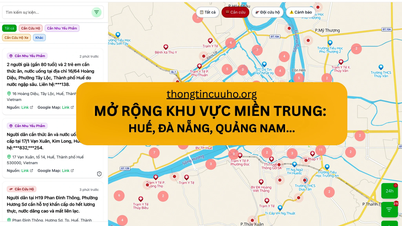

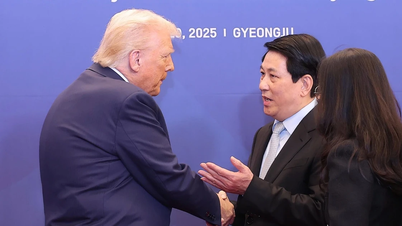





![[Live] Concert Ha Long 2025: "Heritage Spirit - Brightening the Future"](https://vphoto.vietnam.vn/thumb/402x226/vietnam/resource/IMAGE/2025/10/29/1761743605124_g-anh-sang-am-thanh-hoanh-trang-cua-chuong-trinh-mang-den-trai-nghiem-dang-nho-cho-du-khach-22450328-17617424836781829598445-93-0-733-1024-crop-1761742492749383512980.jpeg)



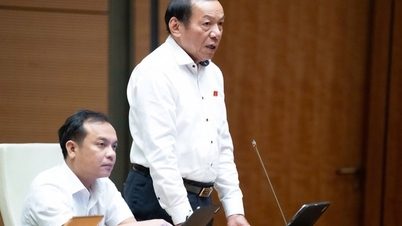
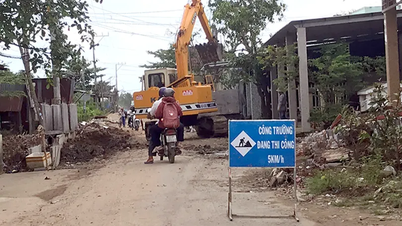























Comment (0)